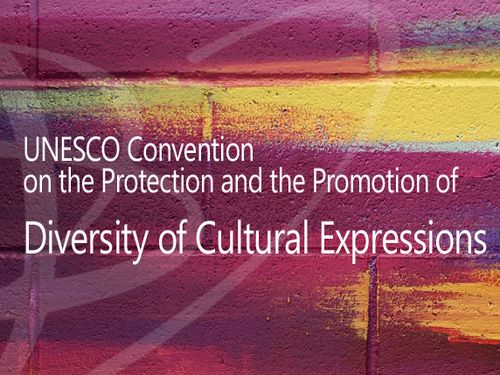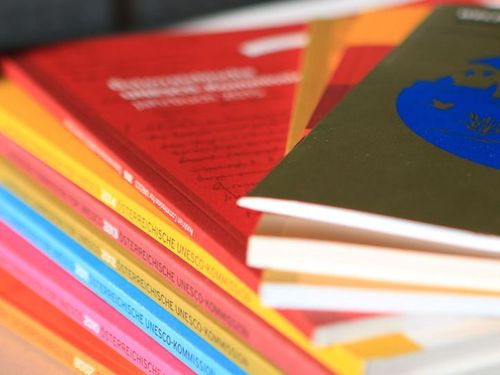What does preferential treatment mean and why is the Global North obliged to provide it?
In almost no area is the UNESCO Convention on the Diversity of Cultural Expressions as explicit as it is on the mobility of arts and cultural operators. The obligations in the area of preferential treatment of the signatory states and the EU are clear: according to Article 16 of the Convention on the Protection and Promotion of the Diversity of Cultural Expressions (2005), preferential treatment must be granted to arts and cultural operators and cultural goods and services from the Global South. The aim is to counteract existing global asymmetries. The provision of preferential treatment obliges countries of the Global North to take measures that support the mobility of arts and cultural actors as well as the exchange of cultural goods and services from the Global South. This involves, for example, simplifying procedures for issuing visas for entry, residence and temporary travel. In addition, capacity building through training, exchanges and residencies for arts and cultural operators is central in order to support them in becoming part of professional networks. The aforementioned Art. 16 is further strengthened by Art. 7 and 12-15 of the Convention as well as concrete implementation guidelines.
Preferential treatment is an advantage granted by one state to another state or group of states without condition of reciprocity (UNESCO).
The latest UNESCO Global Report (2022) shows that the Global North has not yet sufficiently fulfilled its obligations under international law:
- Visa regulations jeopardise the efforts of cultural institutions and civil society to counteract the persisting inequalities between the Global North and the Global South.
- World trade shows no signs of opening up to cultural services from the Global South.
- Restrictions on the movement and mobility of artists are used as a means of repression and censorship; here, the Global North is particularly challenged to provide sanctuary to vulnerable arts and cultural actors.
Related links
- German Short Summary of the UNESCO Global Report 2022: Re|shaping policies for creativity (in GERMAN)
- UNESCO Global Report 2022: Re|shaping policies for creativity
- UNESCO Convention, Operational Guidelines Article 16, "Preferential Treatment"
- German translation of the UNESCO Flyer Preferential Treatment (in GERMAN)
News on the topic mobility / preferential treatment
On 20 November 2023, the Austrian Commission for UNESCO organised the event "African Diaspora in Dialogue: Challenges and Opportunities in the…
With the 5-point plan, experts present concrete recommendations for the reduction of mobility barriers in the arts and culture sector. The plan is the…
Barriers to mobility are numerous - they reinforce global asymmetries in art and culture. The status quo, challenges, solutions and strategies were…
- 4 May2023
In the joint event "Mobility: Privilege and Problem" the Austrian Commision for UNESCO together with Department of Cultural Management and Gender…
From November 2021 to April 2022, Daria Tchapanova worked as a kültüř gemma! Fellow at the Austrian Commission for UNESCO and explored artistic…


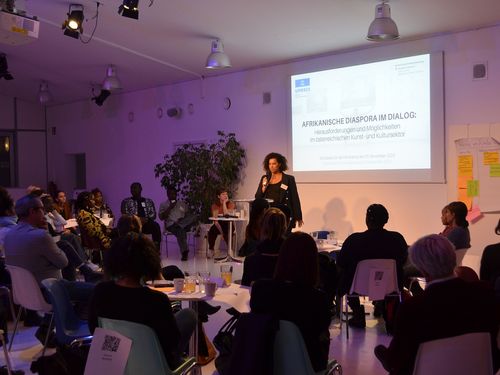
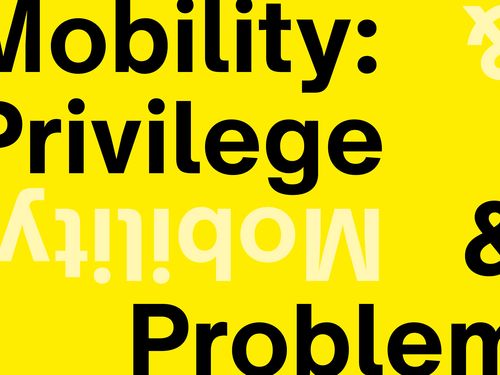
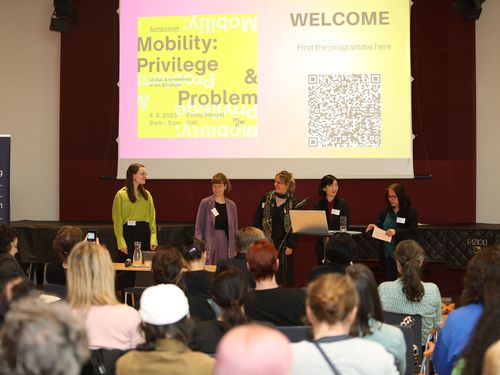
![[Translate to EN:] Symposium Mobility: Privilege & Problem. Global Asymmetries in Art & Culture](/fileadmin/_processed_/c/2/csm_040523Symposium_Mobilita__t_als_Privileg_u_nd_Problem_Plakat_DIGITAL_2_c89f570af2.png)
![[Translate to EN:] KÜLTÜŘ GEMMA! FELLOWSHIP: Barriers to Mobility](/fileadmin/_processed_/4/4/csm_foto_seite_2__c__daria_tchapanova_a4646d45fa.png)
